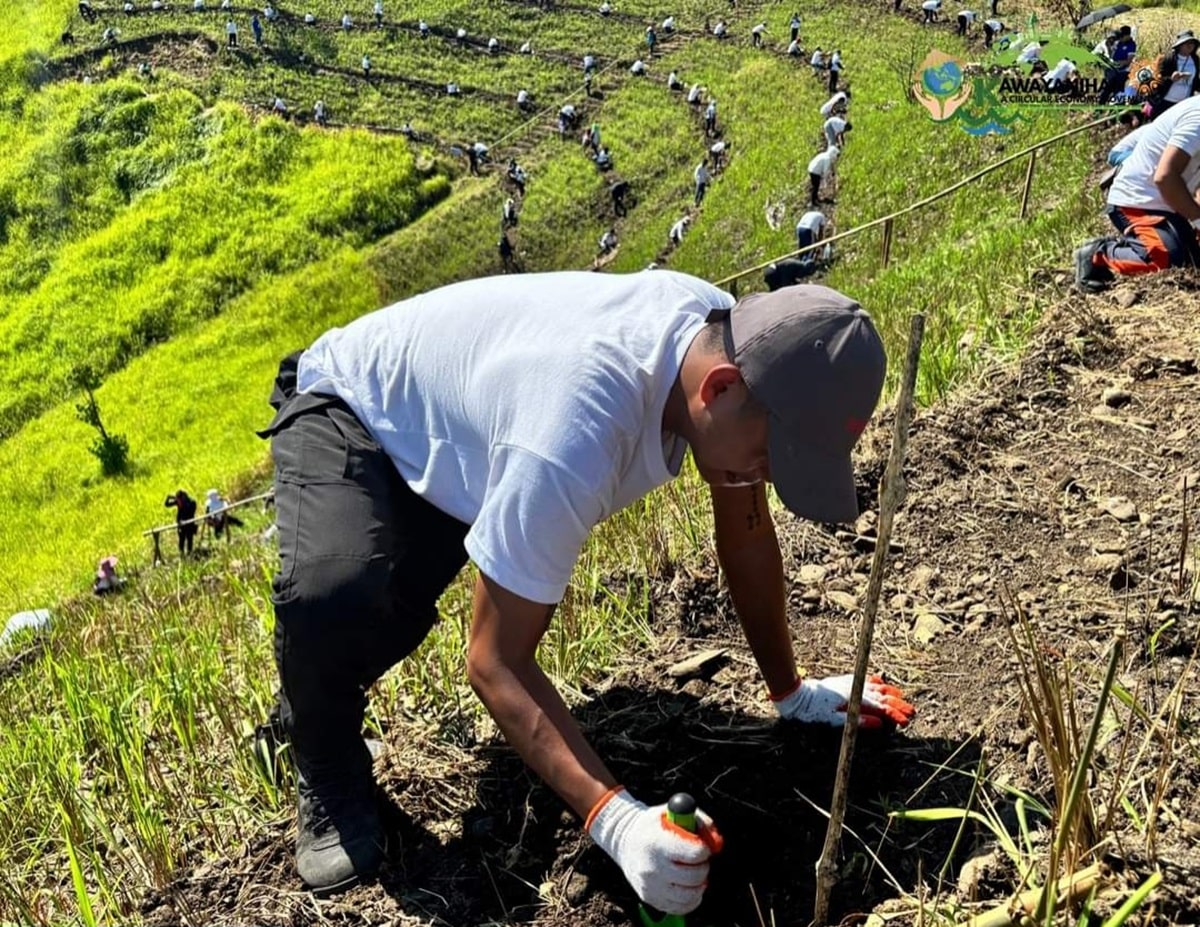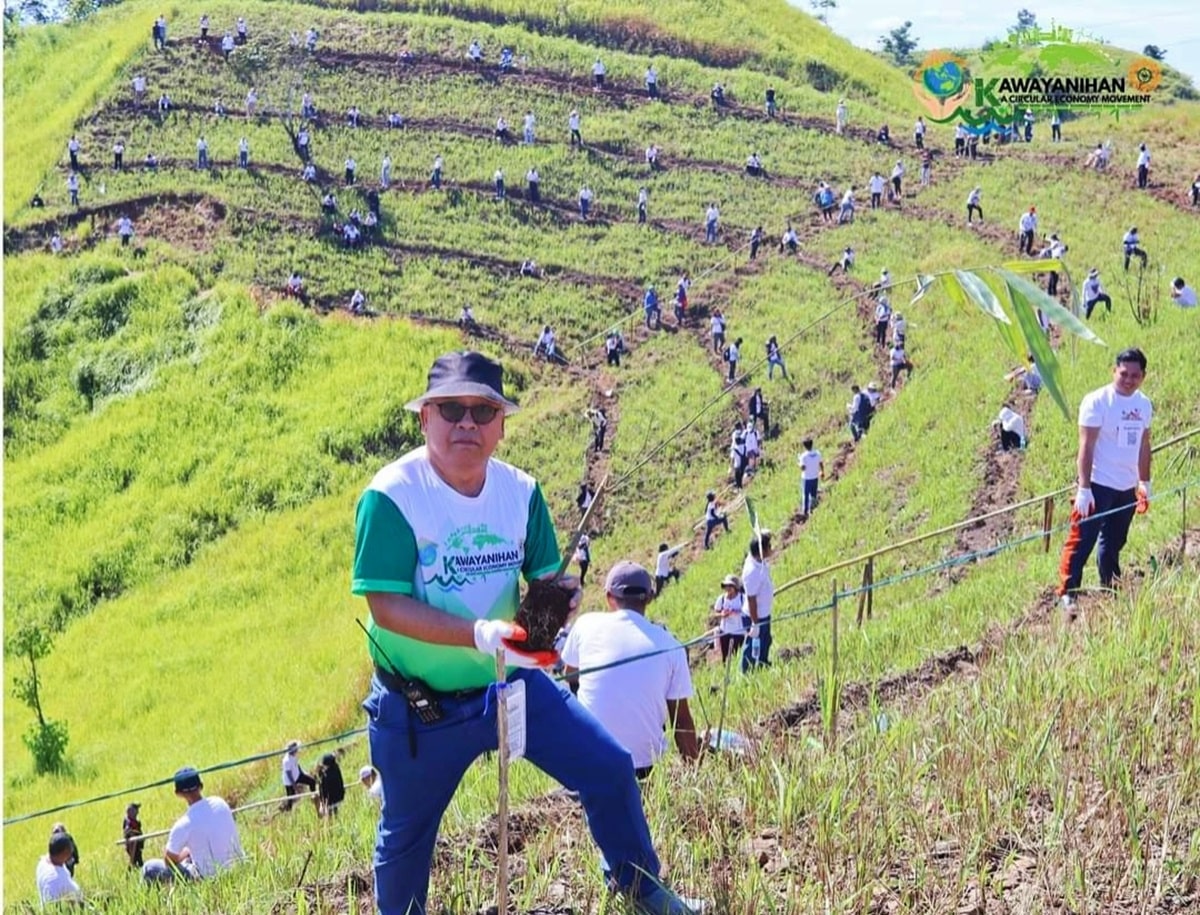

Photos courtesy of DOST-10
CAGAYAN DE ORO CITY, Philippines — At least 4,500 individuals from 50 institutions planted around 20,000 bamboos in different areas of the country, mainly in Mindanao, on Friday in an attempt to achieve a Guinness World Record for “Most People Planting Bamboo Simultaneously.”
The planted bamboo were geotagged to ensure that growth is monitored, as it will, in the future, become a potential source of raw material for various high-value products, said Department of Science and Technology (DOST) regional director Romela Ratilla.
DOST spearheaded the event, dubbed “KAWAYANIHAN,” with the cooperation of various agencies and institutions that have committed to promote bamboo planting as part of their advocacy for a sustainable, climate-resilient, and circular economy.
READ: The miracle of the bamboo
The government has promoted bamboo for its versatile benefits, such as in carbon sequestration, flood and erosion control, and a renewable source of material for everyday products.
Article continues after this advertisement
At least 50 personnel from the Misamis Oriental provincial government planted bamboo in the town of Balingasag together with police officers.
Article continues after this advertisement
READ: ‘Reinventing’ bamboo for sustainable construction



Other planting locations were in the villages of San Isidro in Talakag, Sta. Fe in Libona, Sta. Ines in Malitbog, Puntian in Sumilao, Alae, Dalirig and Maluko in Manolo Fortich, Kalasungay in Malaybalay CIty, all in Bukidnon province; Pagatpat in Cagayan de Oro; Mandangoa in Balingasag, Awang in Opol, Sta. Ana in Tagoloan, Lanise in Claveria, all in Misamis Oriental province.
Planting were also done in the villages of Gupitan, Kapalong, Davao del Norte; Kapoc, Matanao, Davao del Sur; Poblacion, Carmen, Cotabato; Simbalan, Buenavista, Agusan del Norte; and Calbugos, Villaba, Leyte.
Each bamboo planted will be recorded in the Bamboo Resource Inventory System developed by researchers at the Bamboo Niche R&D Center at Central Mindanao University.
This system will monitor the growth of each plant in real-time, providing essential information on bamboo resources to make data-driven decisions, such as bamboo supply forecasting.
In the years ahead, DOST will work closely with stakeholders to develop local unified bamboo industry plans aligned with the Philippine Bamboo Industry Roadmap. These plans will focus on data-driven strategies for pre-processing, value-adding, infrastructure development, and ensuring logistics and marketing support to propel the bamboo industry forward, according to the DOST.

